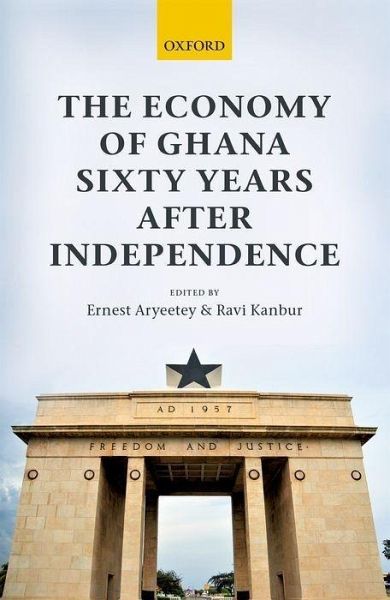
Ernest Aryeetey
Gebundenes Buch
Economy of Ghana Sixty Years After Independence
Versandkostenfrei!
Versandfertig in 1-2 Wochen

PAYBACK Punkte
60 °P sammeln!




This volume assesses the challenges facing Ghana's economy as it enters its seventh decade and the nation heads towards three quarters of a century of independence.
Prior to his appointment as Vice Chancellor Ernest Aryeetey was a Senior Fellow and Director of the Africa Growth Initiative at the Brookings Institution. He was also Director of the Institute of Statistical, Social and Economic Research (ISSER) of University of Ghana, Legon. His research focuses on the economics of development with interest in institutions and their role in development, regional integration, economic reforms, financial systems in support of development and small enterprise development. He is well known for his work on informal finance and microfinance in Africa. He is a member of the Governing Council of United Nations University, Tokyo. He has published with leading development journals and publishers and he is a co-editor of The Oxford Companion to the Economics of Africa (OUP, 2012). Ravi Kanbur is well known for his role in policy analysis and engagement in international development. He has served on the senior staff of the World Bank including as Chief Economist for Africa. He is also ranked in the top 0.5% of academic economists in the world. He is President-Elect of the Human Development and Capabilities Association, Past-President of the Society for the Study of Economic Inequality, Chair of the Board of UNU-WIDER, Co-Chair of the Scientific Council of the International Panel on Social Progress, member of the OECD High Level Expert Group on the Measurement of Economic Performance, and a member of the Core Group of the Commission on Global Poverty.
Produktdetails
- Verlag: Oxford University Press
- Seitenzahl: 448
- Erscheinungstermin: 1. April 2017
- Englisch
- Abmessung: 240mm x 161mm x 29mm
- Gewicht: 800g
- ISBN-13: 9780198753438
- ISBN-10: 0198753438
- Artikelnr.: 47869226
Herstellerkennzeichnung
Libri GmbH
Europaallee 1
36244 Bad Hersfeld
gpsr@libri.de
Für dieses Produkt wurde noch keine Bewertung abgegeben. Wir würden uns sehr freuen, wenn du die erste Bewertung schreibst!
Eine Bewertung schreiben
Eine Bewertung schreiben
Andere Kunden interessierten sich für











